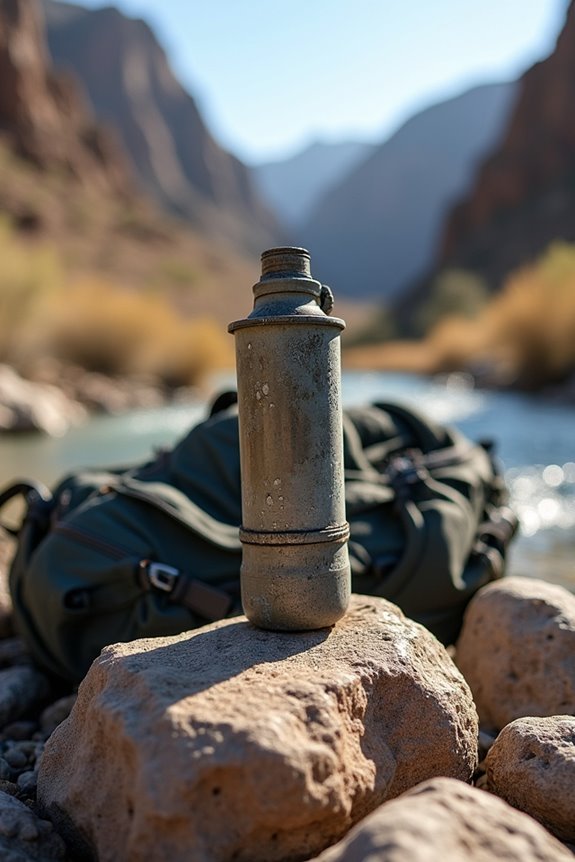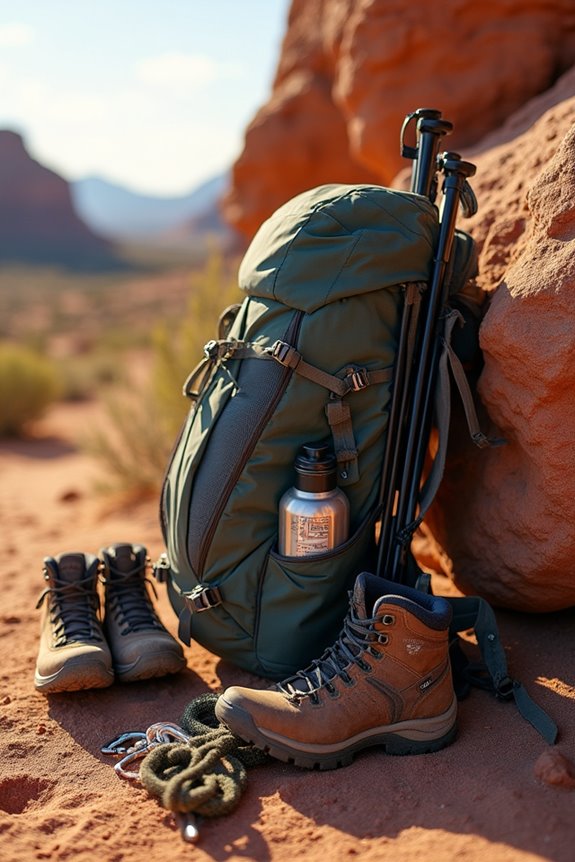When it comes to the best gear for water filters, we’ve got to cover our bases! Mechanical filters, activated carbon, and reverse osmosis systems each play a crucial role in ensuring our water’s clean and safe. Whole-house systems, like SpringWell, tackle contaminants efficiently, while softening systems enhance the experience. Don’t forget to check for NSF/ANSI certifications and user reviews—they’re gold! Trust us; clean water is a game-changer. Stick around, and we’ll hit the highlights of selecting the perfect filter!
Key Takeaways
- Choose mechanical filters for basic dirt and sand removal, ideal for pre-filter applications in larger systems.
- Activated carbon filters effectively remove tastes and odors, enhancing the water’s overall flavor and smell.
- For heavy metal elimination, consider reverse osmosis systems for their thorough filtration capabilities.
- Look into whole-house water filter systems like SpringWell, which tackle multiple contaminants, providing clean water from every tap.
- Ensure any water filter system you choose meets NSF/ANSI standards for guaranteed performance and reliability.
Understanding Different Types of Water Filters
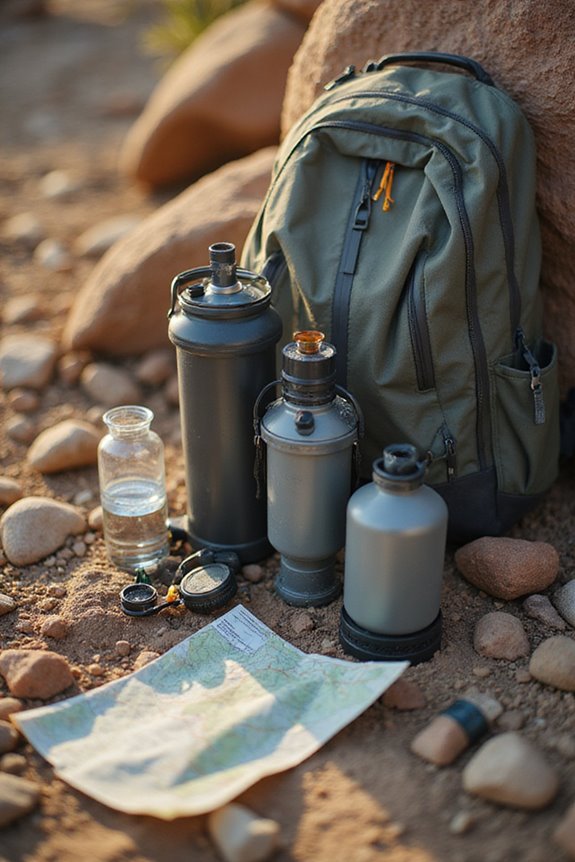
When we hit the trails or set up camp near a bubbling stream, the quality of our water can make or break the experience. Knowing the different filtering technologies is key to great hydration!
For starters, mechanical filters can tackle dirt and sand like champs, while activated carbon filters zap away pesky tastes and odors. Next up, reverse osmosis systems take filtration to the next level, kicking heavy metals to the curb! We can’t forget about ion exchange filters, perfect for softening hard water. And for those times when nature throws bacteria our way, UV filters come to the rescue, zapping germs without chemicals. The best backpacking filters offer 0.1 micron filtration to effectively remove 99.99999% of bacteria and 99.9999% of protozoa from water sources.
Top Whole-House Water Filters for 2025
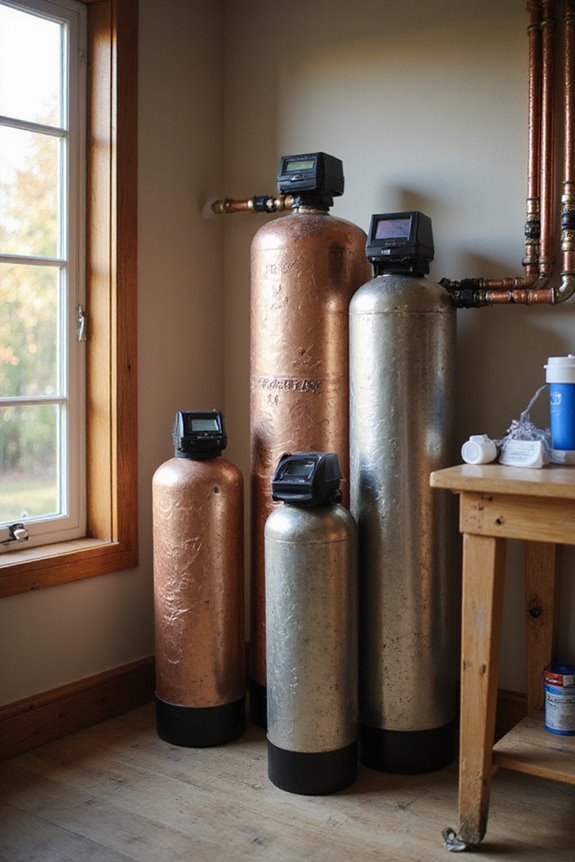
Choosing the right whole-house water filter for 2025 is a game changer for any home. We’ve got our eyes on SpringWell Systems, especially their Whole House Water Filter System, which removes over 10 contaminants like chlorine and those pesky forever chemicals—PFOA, PFOS, and more! Imagine having fresh, clean water flowing from every tap. For those considering portable options instead, the Katadyn Pocket Water Filter offers incredible durability with 20-year guarantee and impressive filtration capabilities. Not only does it boast a killer capacity of up to 1 million gallons, but it’s also low-maintenance, costing around $40 annually. Plus, with Bluetooth monitoring, we can keep tabs on our filter without a hitch! If you’re looking for solid contaminant removal paired with freedom from chemical nasties, these systems are exceptional. So gear up, folks—clean water awaits!
Importance of Water Softening Integration
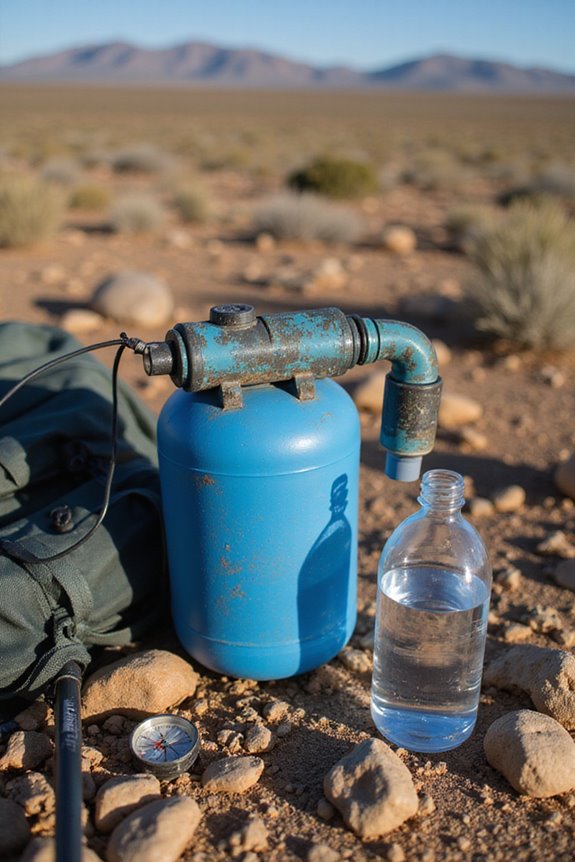
As we navigate the world of home water solutions, it’s clear that integrating water softening with filtration systems is like grabbing the best hiking gear for an epic adventure—essential for a smooth journey! When we combine softening benefits with effective filtration, we’re not just tackling hard water; we’re enhancing our entire water experience. Systems like the LifeStraw Family 1.0 can effectively remove bacteria, viruses, and parasites while maintaining a gravity-fed design perfect for emergency situations. Sure, there can be integration challenges, like ensuring proper sequencing in installation. But think about it: softened water means fewer clogs and glitches in our appliances, while our filtered water remains clean and tasty. We reduce our reliance on bottled water, leading to a more sustainable life. Let’s embrace that freedom! Together, we can enjoy the perfect balance of comfort, safety, and satisfaction right from our taps.
Key Filtration Features and Performance Metrics
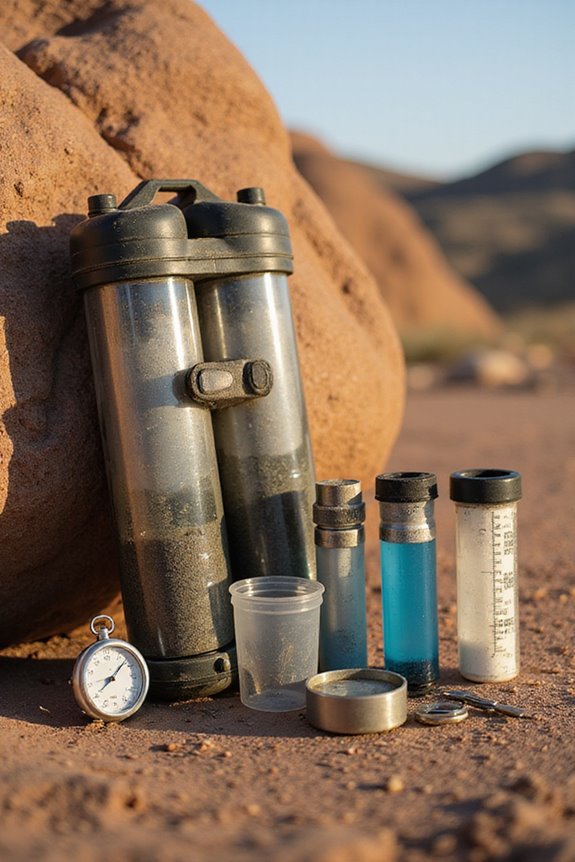
To guarantee we’re getting the best possible drinking water, we need to dig deep into the key filtration features and performance metrics that make a filter truly effective. First off, let’s talk filter efficiency—this is measured not just by how many gallons it can handle, but how well it removes various contaminant types, from pesky lead to those sneaky forever chemicals like PFOA and PFOS.
Look for filters with solid certifications—like NSF/ANSI standards—that promise real results. Don’t fall for marketing fluff; actual performance matters. Plus, filters that use multi-stage technology perform better, tackling a range of impurities. Quality filtration systems should have a pore size range of 0.1 to 0.2 microns to effectively remove bacteria and protozoa from water sources.
Popular Brands and Where to Find Them
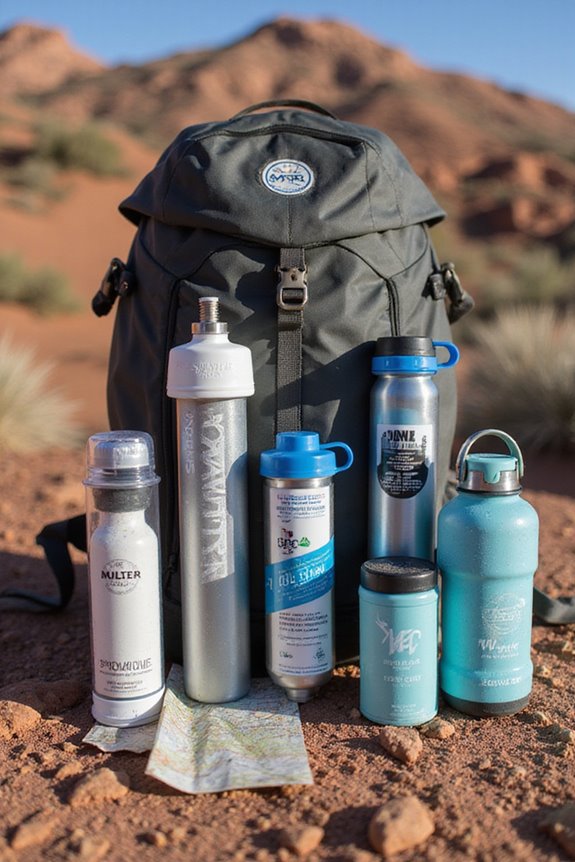
When it comes to finding the right water filter, we’re in for a treat with a variety of popular brands that make the search easy and fun! Take Aquasana, for instance, which offers incredible benefits by filtering out everything from chlorine to lead—perfect for those who want pure, great-tasting water. Then there’s Brita, known for its convenience and widespread availability; you can snag one at your local Target or Walmart without breaking a sweat! Sawyer Squeeze filters are particularly impressive as they remove 99.99999% of bacteria and 100% of microplastics while weighing only 2-5.5 ounces. We can also explore Culligan for specialty needs or the sturdy Berkey and Alexapure for off-grid adventures. Most of these brands are just a click away on Amazon or right at home improvement stores. Let’s liberate our hydration, one filter at a time!
Considerations for Selecting the Right Water Filter
Choosing the right water filter can feel a bit like traversing a challenging trail—a little overwhelming at first, but ultimately rewarding! First, we need to identify our unique contaminants. It’s like knowing which trail markers to follow. User reviews are gold; they shine a light on filter compatibility and real-life performance.
Next, let’s think about the filtration technology—activated carbon, reverse osmosis, or maybe a multi-stage system. Each tackles different nasties, just like choosing the right gear for our hike. Don’t forget to check for certifications, too—a good filter should meet NSF/ANSI standards, giving us peace of mind. Let’s dig deep, do our homework, and choose a filter that aligns perfectly with our adventurous spirit. Adventure awaits!
Maintenance and Cost Factors to Keep in Mind
Just like picking the perfect trail requires more than just a good map, maintaining your water filter is all about understanding what lies ahead. We can’t forget the filter lifespan—regular replacements are key. Replacement costs can range from $100 to $550 annually, depending on the system. Let’s be honest, the upfront expense may seem steep, but when we do a cost comparison against potential repairs, it’s worth it!
If you’re living in an area with tricky water quality, we’ll need to keep an even closer eye on upkeep, which boosts those costs. But don’t worry—taking time for inspection can save us from nasty surprises later. Freedom is about enjoying clean water without breaking the bank!
Frequently Asked Questions
How Often Should I Replace Filter Cartridges in My System?
Picture crystal-clear water flowing freely; for that, we must prioritize filter maintenance. Depending on cartridge types, we should replace them every 3 to 12 months, ensuring our water stays pure, safe, and invigorating.
Can I Install a Whole-House Water Filter Myself?
Sure, we can tackle a DIY installation of a whole-house water filter ourselves! With the right plumbing tools and some basic skills, we’ll enjoy cleaner water and the freedom of managing our own system.
What Is the Lifespan of a Typical Water Filtration System?
Imagine enjoying crisp, clean water from a filtration system that lasts well: the typical lifespan can be 6 to 12 months for filters. By staying vigilant, we guarantee our water remains fresh and safe.
Are There Any Health Benefits to Using Water Filters?
When we consider water quality, the health benefits are clear. Using water filters enhances our hydration, reduces harmful contaminants, and supports our overall wellness. Clean water really does empower us to live healthier, happier lives.
How Do I Know if My Water Filter Is Effective?
To determine our water filter’s effectiveness, we should conduct filter testing and observe effectiveness indicators, like taste and clarity. Trusting certifications and maintaining our filters can guarantee we enjoy clean, safe water freely.

